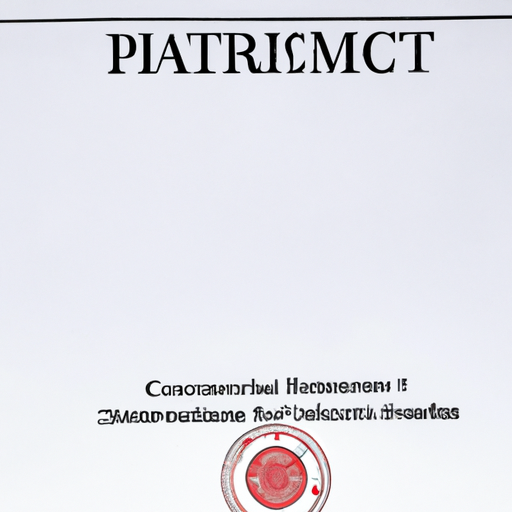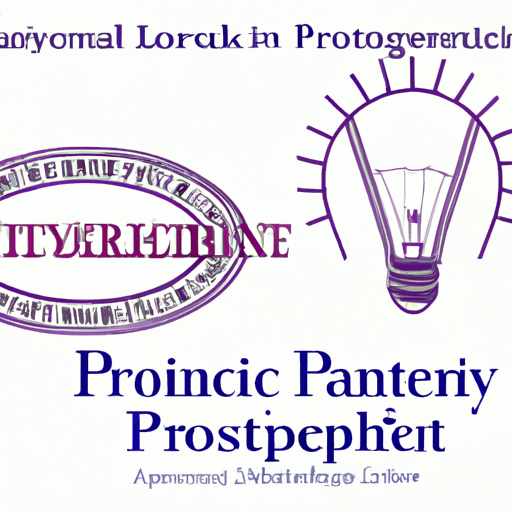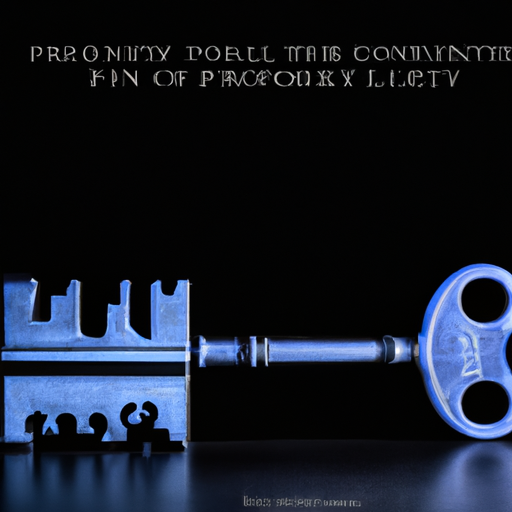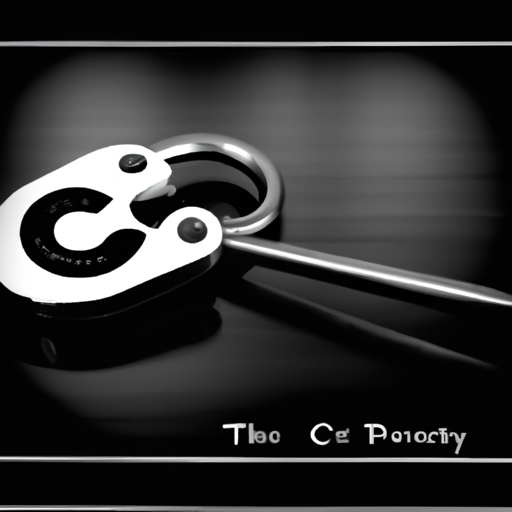In the world of intellectual property, safeguarding your creative ideas, innovations, and branding assets is crucial to maintaining a competitive edge in the marketplace. That’s where the expertise of an Intellectual Property Lawyer in Erda, Utah, comes into play. With a deep understanding of copyright, trademark, and patent laws, this attorney can navigate the complexities of intellectual property protection to ensure that your valuable assets are secure. Whether you’re a startup founder, an established business owner, or an individual artist, this lawyer can provide guidance and representation tailored to your specific needs. With a wealth of knowledge and experience in the field, they are well-equipped to address any legal concerns you may have and provide the strategic advice necessary to safeguard your intellectual property rights. In this article, we’ll delve into the intricacies of intellectual property law, explore frequently asked questions, and provide valuable insights to help you protect your creative endeavors.

What is Intellectual Property Law?
Intellectual Property (IP) law refers to the legal framework that governs the protection of creations of the mind. It grants exclusive rights to individuals or businesses for their intellectual creations, preventing others from using, selling, or profiting from those creations without permission.
Definition of Intellectual Property
Intellectual property encompasses a wide range of intangible assets, including inventions, designs, literary and artistic works, symbols, and names used in commerce. This includes patents, trademarks, copyrights, trade secrets, and industrial designs.
Types of Intellectual Property
-
Patents: Patents provide inventors with exclusive rights to their inventions. They protect new and useful processes, machines, composition of matter, and improvements thereof.
-
Trademarks: Trademarks are distinctive signs that distinguish goods or services in the marketplace. They can be logos, names, phrases, or symbols that identify a specific source of goods.
-
Copyrights: Copyrights protect original works of authorship, such as literary, artistic, musical, and pictorial works. They give creators the right to reproduce, distribute, display, and perform their works.
-
Trade Secrets: Trade secrets are confidential and proprietary information that provide businesses with a competitive advantage. This can include formulas, designs, manufacturing processes, customer lists, and marketing strategies.
Importance of Intellectual Property Law
Intellectual property law plays a crucial role in fostering innovation, creativity, and economic growth. It encourages the development of new ideas and inventions by providing legal protection and incentives for creators and inventors. Without intellectual property rights, there would be little motivation for individuals and businesses to invest time and resources into creating and innovating.
Additionally, intellectual property rights help protect businesses from unfair competition, counterfeit products, and unauthorized use of their creations or inventions. They provide a legal framework for resolving disputes and enforcing rights, ensuring that creators and inventors can monetize and benefit from their intellectual property.
Services Provided by an Intellectual Property Lawyer
An intellectual property lawyer specializes in providing legal services related to intellectual property matters. They assist individuals and businesses in protecting their intellectual property rights and enforcing them when necessary. Some of the key services provided by an intellectual property lawyer include:
Trademark Registration and Protection
An intellectual property lawyer can help businesses register their trademarks with the appropriate authorities, such as the United States Patent and Trademark Office (USPTO). They guide clients throughout the application process, ensuring compliance with legal requirements and maximizing the chances of successful registration. Additionally, they offer ongoing trademark protection services, monitoring for potential infringements and taking legal action if necessary.
Copyright Registration and Enforcement
Copyright registration is not required for protection, as copyright automatically exists upon creation of an original work. However, registering copyrights with the Copyright Office provides additional benefits, such as the ability to sue for damages in case of infringement. An intellectual property lawyer can assist in the registration process and help enforce copyright protection through litigation or negotiation.
Patent Application and Prosecution
Obtaining a patent is a complex and lengthy process that requires expert knowledge and legal expertise. An intellectual property lawyer can guide inventors and businesses through each step of the patent application and prosecution process. They help in conducting searches, preparing application documents, responding to office actions, and representing clients in front of the USPTO.
Trade Secret Protection
Trade secrets are valuable assets that require comprehensive protection. An intellectual property lawyer can help businesses identify and safeguard their trade secrets through the implementation of non-disclosure agreements, employment contracts, and trade secret policies. They also offer advice on best practices to maintain trade secret confidentiality and can take legal action in case of trade secret misappropriation.
Intellectual Property Litigation
In cases of intellectual property infringement or disputes, an intellectual property lawyer plays a crucial role in representing clients in court. They handle all aspects of litigation, including pre-trial negotiations, discovery, trial preparation, and appeals. Their expertise in intellectual property law helps them build strong legal arguments and protect their clients’ rights.
Why Hire an Intellectual Property Lawyer?
Hiring an intellectual property lawyer is essential for businesses and individuals seeking to protect their intellectual property rights. Here are some key reasons why you should consider hiring an intellectual property lawyer:
Expertise in Intellectual Property Law
Intellectual property law is highly complex and constantly evolving. An experienced intellectual property lawyer has in-depth knowledge of the law and keeps up to date with the latest developments. They understand the intricacies of different types of intellectual property and can provide tailored advice and guidance based on your specific needs.
Protection of Intellectual Property Rights
An intellectual property lawyer helps you establish and protect your intellectual property rights. They ensure that your creations or inventions are properly registered, thereby granting you exclusive rights and preventing others from using them without permission. In case of infringement, they take prompt legal action to enforce your rights and seek appropriate remedies.
Navigating Complex Legal Procedures
Obtaining and protecting intellectual property rights involves dealing with complex legal procedures. An intellectual property lawyer guides you through the entire process, ensuring compliance with legal requirements and deadlines. They handle all the paperwork, negotiations, and communications with relevant government agencies, saving you time and effort.
Preventing Intellectual Property Infringement
An intellectual property lawyer can help you proactively identify and prevent potential infringement issues. They conduct thorough searches and analyze existing trademarks, copyrights, and patents to ensure your proposed intellectual property does not infringe upon others’ rights. This helps avoid costly legal disputes and potential damage to your business reputation.
Defense Against Infringement Claims
If you face allegations of intellectual property infringement, an intellectual property lawyer can mount a strong defense on your behalf. They investigate the claims, assess the strength of the case against you, and develop a legal strategy to protect your interests. They have the expertise to challenge invalid or weak claims and negotiate favorable settlements if necessary.

How to Choose the Right Intellectual Property Lawyer
Selecting the right intellectual property lawyer is crucial to ensure effective representation and protection of your intellectual property rights. Here are some factors to consider when choosing an intellectual property lawyer:
Experience and Specialization
Look for a lawyer with extensive experience in intellectual property law and a focus on your specific industry or type of intellectual property. An experienced lawyer will have a deep understanding of the relevant legal nuances and procedures, increasing the likelihood of a favorable outcome.
References and Client Testimonials
Ask for references and seek out client testimonials or reviews to assess the lawyer’s reputation and track record. Positive feedback from previous clients is a good indication of their professionalism, expertise, and client satisfaction.
Success Rate in Handling IP Cases
Inquire about the lawyer’s success rate in handling intellectual property cases. A high success rate shows their ability to effectively protect and enforce intellectual property rights. While each case is unique, a lawyer with a consistent track record of successful outcomes is a valuable asset.
Communication and Availability
Effective communication is essential in a lawyer-client relationship. Look for a lawyer who is accessible, responsive, and communicates clearly and timely. A lawyer who takes the time to explain complex legal concepts in a way that you can understand is invaluable.
Fee Structure and Cost Transparency
Understand the lawyer’s fee structure and ensure that it aligns with your budget and expectations. Seek clear transparency regarding costs, including billing rates, any additional fees, and estimated expenses for your case. A lawyer who provides upfront cost estimates and keeps you informed about billing is essential for maintaining a healthy client-lawyer relationship.
Protecting Your Intellectual Property
Protecting your intellectual property is crucial to safeguarding your business’s innovations, creativity, and competitive advantage. Here are some key steps to take in the process:
Identifying and Evaluating Intellectual Property
Start by identifying and evaluating the intellectual property that your business possesses. This includes assessing inventions, designs, trade secrets, logos, brand names, written works, and other creative works that may be eligible for protection.
Registering Trademarks, Copyrights, and Patents
Work with an intellectual property lawyer to register your trademarks, copyrights, and patents with the appropriate government authorities. This ensures that you have legally recognized protection for your intellectual property and can take legal action against infringers.
Drafting and Negotiating Licensing Agreements
Consider licensing agreements as a means of commercializing your intellectual property. An intellectual property lawyer can help you draft licensing agreements that effectively protect your rights while allowing others to use your intellectual property for a fee or under specific terms.
Implementing Non-Disclosure and Non-Compete Agreements
To protect your trade secrets and confidential information, it is crucial to implement non-disclosure agreements (NDAs) and non-compete agreements. These agreements prevent employees, contractors, and business partners from disclosing or using your proprietary information for their own benefit.
Enforcing Intellectual Property Rights
Surveillance is crucial to identify potential infringements of your intellectual property rights. Regularly monitor the marketplace for unauthorized use and take prompt action if infringement is detected. An intellectual property lawyer can assist in cease and desist letters, negotiation, litigation, and seeking damages to enforce your rights.

Intellectual Property Infringement
Intellectual property infringement occurs when someone uses, reproduces, or profits from another’s intellectual property without permission or infringing on their exclusive rights. Here are some key aspects to understand about intellectual property infringement:
Understanding Infringement Laws
Intellectual property infringement laws provide legal remedies for the unauthorized use of intellectual property. Infringement can occur in various ways, including copying, distributing, performing, or using someone else’s intellectual property without permission. Each type of intellectual property has specific legal protections and remedies for infringement.
Responding to Infringement Threats
If you become aware of potential infringement of your intellectual property, it is crucial to respond promptly. Consult with an intellectual property lawyer who can assess the situation, gather evidence, and advise on the most appropriate course of action. They can help you determine the strength of your case and devise a strategy for resolution.
Cease and Desist Letters
One common way to address intellectual property infringement is by sending a cease and desist letter. This letter outlines the alleged infringement, demands that the infringing party immediately cease their activities, and may include a request for compensation or damages. An intellectual property lawyer can assist in drafting and sending effective cease and desist letters.
Litigation and Damages
If informal resolution attempts are unsuccessful, litigation may be necessary to enforce your intellectual property rights. An intellectual property lawyer can represent you in court, presenting evidence and arguments to support your case. If successful, you may be entitled to damages, injunctions, and other remedies depending on the type and extent of infringement.
Defenses Against Infringement Claims
If accused of intellectual property infringement, it is essential to mount a strong defense. An intellectual property lawyer can help investigate the allegations, gather evidence, and develop a legal strategy. They can explore potential defenses, such as fair use, lack of originality, or prior use, and protect your rights throughout the litigation process.
Common Intellectual Property Disputes
Intellectual property disputes arise in various contexts and can have significant implications for businesses and individuals. Here are some common types of intellectual property disputes:
Trademark Infringement
Trademark infringement occurs when someone uses a registered trademark or a similar mark in a way that creates confusion among consumers. This can harm the reputation of the original trademark owner and lead to financial losses. Trademark disputes often involve issues such as brand identity, similarity of marks, and consumer confusion.
Copyright Infringement
Copyright infringement occurs when someone uses, reproduces, or creates derivative works from copyrighted material without permission from the original copyright owner. This can involve copying written works, distributing unauthorized copies, or using copyrighted images or music without a license. Copyright disputes often center around issues of originality, substantial similarity, and fair use.
Patent Infringement
Patent infringement occurs when someone makes, uses, or sells a patented invention without permission from the patent holder. This can involve manufacturing or selling products that infringe on someone else’s patented technology or process. Patent disputes often revolve around issues such as prior art, patent claims, and scope of the invention.
Trade Secret Misappropriation
Trade secret misappropriation occurs when someone acquires, uses, or discloses another’s trade secret without permission. This can happen when employees or business partners disclose sensitive information to competitors or when a person gains unauthorized access to trade secret information. Trade secret disputes typically involve issues of confidentiality, reasonable efforts to maintain secrecy, and misappropriation.
Intellectual Property FAQ
Here are some frequently asked questions about intellectual property along with brief answers:
What is the process of trademark registration?
The process of trademark registration involves conducting a comprehensive search to ensure the availability of the proposed trademark, preparing the application and supporting documents, filing the application with the appropriate authority (such as the USPTO), responding to any office actions, and paying the required fees. The process can take several months to complete, and it is recommended to seek the assistance of an intellectual property lawyer for smooth registration.
What can I do if someone is using my copyrighted work without permission?
If someone is using your copyrighted work without permission, there are several steps you can take. Start by gathering evidence of the infringement, such as copies of the infringing material and proof of your copyright ownership. Send a cease and desist letter demanding the immediate cessation of the infringing activities. If the infringement continues, consult with an intellectual property lawyer to explore legal options, which may include filing a lawsuit for copyright infringement.
How long does a patent application process take?
The time it takes for a patent application to process varies depending on various factors, including the complexity of the invention, the backlog at the patent office, and the responsiveness of the applicant. On average, it can take anywhere from several months to several years for a patent application to be examined and granted. Consulting with an intellectual property lawyer can help streamline the process and ensure compliance with all necessary requirements.
What is the difference between a trade secret and a patent?
The main difference between a trade secret and a patent lies in the way they provide protection. A trade secret refers to confidential and proprietary information that provides a competitive advantage, such as formulas, recipes, or customer lists. Trade secrets are protected by keeping them secret and taking reasonable steps to maintain their confidentiality. On the other hand, a patent is a government-granted exclusive right that protects inventions or discoveries for a limited period. Patents provide legal protection and prevent others from using, making, or selling the patented invention without permission.
What damages can I seek in an intellectual property infringement lawsuit?
In an intellectual property infringement lawsuit, you may be entitled to various forms of damages, depending on the type of infringement and the extent of the harm caused. These can include actual damages, which compensate for the actual financial loss suffered as a result of the infringement, and statutory damages, which are predetermined amounts set by law and can be awarded without proof of actual damages. Additionally, you may be eligible for injunctive relief, which can include court orders to cease the infringing activities.
Case Studies: Intellectual Property Success Stories
Here are some case studies highlighting the success of our intellectual property law services:
How Our Firm Successfully Defended a Trademark Infringement Case
Our firm was retained by a client who faced allegations of trademark infringement from a competitor. Through thorough examination of the evidence and strong legal arguments, we were able to demonstrate the differences between our client’s trademark and the competitor’s mark, proving that there was no likelihood of confusion among consumers. As a result, the court dismissed the trademark infringement claim, ensuring our client’s continued use of their valuable brand.
A Client’s Journey in Protecting Their Copyrighted Material
One of our clients, a renowned author, sought our assistance in protecting their copyrighted material against unauthorized reproductions and distribution. We conducted a comprehensive search to identify instances of infringement and sent cease and desist letters to the infringing parties. Through skillful negotiations and enforcement actions, we successfully stopped the unauthorized use of our client’s works and secured the necessary compensation for damages.
Securing a Patent for a groundbreaking Invention
We worked closely with a client who had developed a groundbreaking invention in the technology sector. Our team conducted a thorough prior art search to ensure the novelty of the invention and drafted a strong patent application. We guided the client through the entire prosecution process, responding to office actions and presenting persuasive arguments to the patent examiner. Eventually, our client’s patent was granted, providing them with exclusive rights to their invention and a significant market advantage.
Successfully Resolving a Trade Secret Misappropriation Dispute
Our firm represented a manufacturing company that discovered a former employee had misappropriated their trade secrets and joined a competitor. We conducted an in-depth investigation and gathered compelling evidence of the misappropriation. Through litigation, we obtained injunctive relief, preventing the competitor from using the stolen trade secrets and imposing financial penalties. Our client was pleased with the outcome, as we successfully protected their valuable trade secrets and secured compensation for the damages suffered.
Contact an Intellectual Property Lawyer in Erda Utah
When it comes to protecting your intellectual property rights and resolving intellectual property disputes, it is crucial to seek the guidance and assistance of a skilled intellectual property lawyer. Our firm has extensive experience in intellectual property law and is committed to delivering top-notch legal services to clients in Erda, Utah, and beyond.
Schedule a Consultation Today
Contact our firm today to schedule a consultation with one of our experienced intellectual property lawyers. We will assess your specific needs, provide customized advice, and develop a strategy to protect your intellectual property.
Get the Legal Protection Your Intellectual Property Deserves
Don’t let your valuable intellectual property go unprotected. Our firm is dedicated to providing exceptional legal services to help you safeguard your creativity, ideas, and inventions. We will work tirelessly to ensure that your intellectual property rights are fully protected and your interests are safeguarded.
Take the First Step in Safeguarding Your Business’s Innovations
Intellectual property is the lifeblood of many businesses, and protecting it is vital to maintain a competitive advantage. Take the first step in safeguarding your business’s innovations by consulting with our knowledgeable intellectual property lawyers. We will assess your intellectual property portfolio, identify potential risks, and create a comprehensive strategy to protect your valuable assets.
Call our Office for Expert Intellectual Property Guidance
If you have any questions or concerns regarding intellectual property law, do not hesitate to call our office. Our team of skilled intellectual property lawyers is ready to provide expert guidance and assist you in all aspects of intellectual property protection, enforcement, and litigation.
Protect Your Intellectual Property Rights Now
Do not delay in protecting your intellectual property rights. Contact our firm today to ensure that your creations, inventions, and brand are fully protected and your interests are secured. With our expert guidance and legal expertise, you can navigate the complexities of intellectual property law with confidence. Call our office now to secure the legal protection your intellectual property deserves.
FAQs:
-
What is the process of trademark registration? The process of trademark registration involves conducting a comprehensive search to ensure the availability of the proposed trademark, preparing the application and supporting documents, filing the application with the appropriate authority (such as the USPTO), responding to any office actions, and paying the required fees. The process can take several months to complete, and it is recommended to seek the assistance of an intellectual property lawyer for smooth registration.
-
What can I do if someone is using my copyrighted work without permission? If someone is using your copyrighted work without permission, there are several steps you can take. Start by gathering evidence of the infringement, such as copies of the infringing material and proof of your copyright ownership. Send a cease and desist letter demanding the immediate cessation of the infringing activities. If the infringement continues, consult with an intellectual property lawyer to explore legal options, which may include filing a lawsuit for copyright infringement.
-
How long does a patent application process take? The time it takes for a patent application to process varies depending on various factors, including the complexity of the invention, the backlog at the patent office, and the responsiveness of the applicant. On average, it can take anywhere from several months to several years for a patent application to be examined and granted. Consulting with an intellectual property lawyer can help streamline the process and ensure compliance with all necessary requirements.
-
What is the difference between a trade secret and a patent? The main difference between a trade secret and a patent lies in the way they provide protection. A trade secret refers to confidential and proprietary information that provides a competitive advantage, such as formulas, recipes, or customer lists. Trade secrets are protected by keeping them secret and taking reasonable steps to maintain their confidentiality. On the other hand, a patent is a government-granted exclusive right that protects inventions or discoveries for a limited period. Patents provide legal protection and prevent others from using, making, or selling the patented invention without permission.
-
What damages can I seek in an intellectual property infringement lawsuit? In an intellectual property infringement lawsuit, you may be entitled to various forms of damages, depending on the type of infringement and the extent of the harm caused. These can include actual damages, which compensate for the actual financial loss suffered as a result of the infringement, and statutory damages, which are predetermined amounts set by law and can be awarded without proof of actual damages. Additionally, you may be eligible for injunctive relief, which can include court orders to cease the infringing activities.


















































